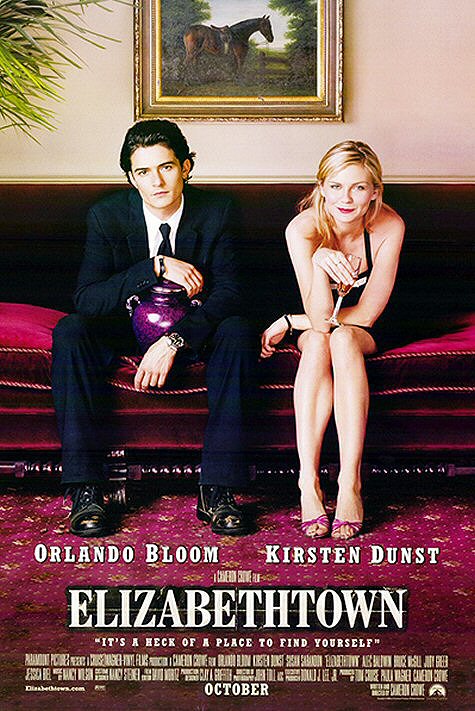Persistence of Crash
Sometime within the next week or two, Paul Haggis’s Crash is going to pass the $50 million mark in theatrical revenue. That’s an extraordinary haul for a film that’s not exactly a downer but is about as divorced from the conventional definition of a feel-good audience hit as you can imagine.
It’s a socially observant thing that ends with a hopeful or balanced view of who and what we are in terms of racial attitudes. It also says that widespread racism has made us all fairly miserable inside the prison of our own skins. And yet people are going for it.
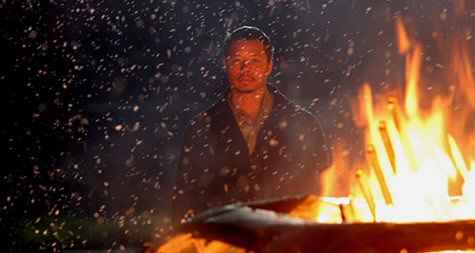
Terrence Howard’s character, a Hollywood filmmaker, during a contemplative, settle-down moment in Crash.
Crash has performed so surprisingly well that year-end awards and Oscar nominations are starting to seem inevitable. The year-end hoopla will be spurred along by the release of the DVD sometime in the early fall, and a limited theatrical re-release aimed at Academy voters sometime in December or perhaps January.
The cultural-political element seems to have caught on also and made Crash into a shorthand term for crude racial pigeonholing, and, in another sense, a recognition that racism is as pernicious as ever.
< ?php include ('/home/hollyw9/public_html/wired'); ?>
Like Oprah Winfrey spokesperson Michelle McIntyre describing Winfrey’s being denied entrance to that Hermes store a few days ago in Paris as “her Crash moment.”
Or Al Sharpton visiting Mexico president Vicente Fox in late May and slipping him a DVD of Crash to watch.
Or recently elected Los Angeles mayor Antonio Villagrosa referring to the film while making a point about racism during an interview last Monday (6.20) on Ted Koppel’s Nightline.
When Crash opened seven weeks ago — on Friday, 5.6 — the commercial expectations were upbeat but modestly so. Lions Gate had acquired it for about $3.3 million at last September’s Toronto Film Festival, and this seemed like an appropriate price. “We thought it would do a minimum of $25 to $30 million,” Lions Gate president Tom Ortenberg recalls.
It’s now in 492 theatres and has taken in over $47 million.
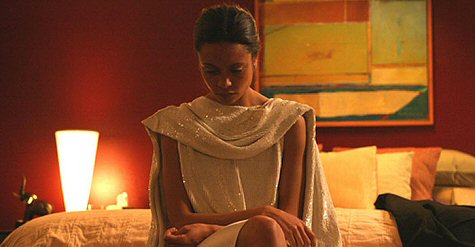
Crash costar Thandie Newton
A sharply written ensemble piece about racial divides in and around Los Angeles, Crash had been generally well reviewed with a 78% Rotten Tomatoes rating, and yet it was panned by some big guns — N.Y. Times lead critic Tony Scott, L.A. Times second-stringer Carina Chocano, Jamie Bernard of the N.Y. Daily News, the Boston Globe‘s Ty Burr.
The reactions were very favorable when I showed Crash at my UCLA Sneak Previews class in early April, which seemed significant in that the class is mainly composed of people in their 40s and 50s, who tend to shy away from push-comes-to-shove dramas.
Crash‘s co-screenwriter Bobby Moresco says he knew something was up when he went to see how the film was performing at a Burbank megaplex during the opening weekend. “It was a show in the middle of the afternoon, there was a long line waiting to get in, and the theatre was 80% filled,” he said.
Moresco noticed the same level of response when he went back the next day — i.e., Sunday afternoon.
“It was obvious to us that we had something,” Ortenberg told me yesterday. “The Friday to Sunday trajectory was very strong, there were great exit polls, and business was very good on the Monday and Tuesday after the first weekend.
“And then week after week, it was clear not only that audiences were discovering Crash, but the picture was becoming a water-cooler movie.”
Crash “is really the perfect Lions Gate film,” he said. “Indie crediblity along with commercial viability.
“We opened up at #4, and yet we stayed in the top five for four weeks. Kingdom of Heaven more than doubled our gross on opening weekend, but by the third weekend we outgrossed them. Clearly we had a film that was affecting people.”
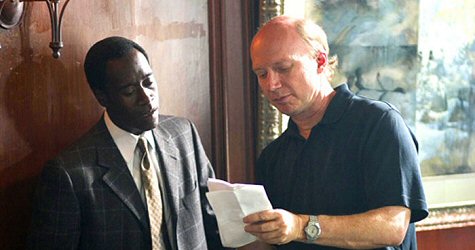
Crash star Don Cheadle, director and cowriter Paul Haggis during filming
My opinion is that it’s working with audiences because it hits hard in showing racial incidents but at the same time leaves you with a sense of balance and even compassion.
Everyone in this sharply written ensemble drama is shown to be a racist or a victim of racism, but they’re also given a balancing trait or shown having a moment of clarity and self recognition. Matt Dillon’s beat cop is depicted as racist pig on one hand, but also a guy capable of heroism when he saves Thandie Newton from that car fire and also a guy who grieves over his ailing father…that kind of thing.
“In many respects today’s movie-marketing world is about cookie-cutter distribution and massive ad budgets and the usual usual,” Ortenberg comments. “And so it’s especially gratifying when you have a film that needs TLC to get through and is benefiting from word of mouth and really taking off on this level.
“If I could single out one person at Lion’s Gate who orchestrated this more than anyone else, it would be (exec vp publicity) Sarah Greenberg,” Ortenberg says.
“Sarah did a text book long-lead critic and opinion-maker screening program where she was able to identify the supporters and champions of the film, and get them to come out visibly for the film in a big way. Ebert and Roeper went with their rave fairly early, about two weeks before the release. David Denby at the New Yorker wrote a great review, and he also hosted a New Yorker screening program showing.
“Unlike some of the others who bid on this film in Toronto, we always saw Crash as a wide release movie.” It opened on 5.6 in about 1800 theatres.
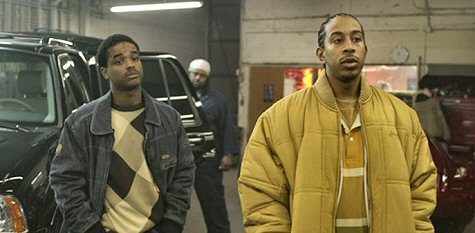
Crash Larenz Tate, Chris “Ludacris” Bridges.
“I have gotten more calls and e-mails from colleagues…more calls congratulating Lions Gate for picking this movie up and doing well with it,” Ortenberg remarks. “And we always got similar reactions from screening programs around the country.
“Our two worst reviews in the country came from the New York Times and the LA Times . There were naysayers, there always are…but the film really did well at the end of the day.”
The movies that tend to connect are the ones that prompt a sense of basic recognition. I think people are privately acknowledging their feelings of racism when they see Crash. Remember what Randy Newman said a long time ago about us all being rednecks, etc.?
I think people are also responding to the film’s optimistic view of this common failing. It says that we’re flawed, yes, but we’re not that bad, and we’re capable now and then of being noble and kind.
Earnestly
I wrote this up in the WIRED section late last night but I’m feeling emphatic and I don’t care if I’m repeating myself: I was blown away by Fernando Meirelles’ The Constant Gardener (Focus Features, 8.26) at a screening last night, and I found this surprising since I was told a few months ago by a filmmaker in a position to know that it might not be all that much.
As murder mysteries go (and it does fall under this category…sort of), this Focus Features release may be too thoughtful and complex and emotionally subtle to play big with younger audiences, and we all know that Ralph Fiennes and Rachel Weisz are not marquee names. But trust me when I say it’s very high-quality merchandise with a decent shot at year-end awards and Oscar noms.
This is easily the best theatrical adaptation of a John le Carre novel since The Spy Who Came In From The Cold (1966).
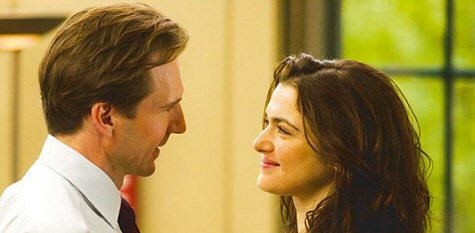
Ralph Fiennes, Rachel Weisz in Fernando Meirelles’ The Constant Gardener.
I expected something fairly good, as anyone would from the director of the magnificent City of God, but I didn’t expect The Constant Gardener to be quite this smart and impassioned and as pointedly political.
Why is it that American directors (Oliver Stone and Warren Beatty excepted) never seem to deliver films with hard political content? Meirelles seems to understand this story about poor Africans being exploited by rich drug companies because he’s made a film about poor Brazilians coping with similarly oppressive conditions.
It’s a combination love story and whodunit wrapped inside a realistic political drama that feels as raw and teeming as City of God and then some. Set mostly in Kenya, its about the murder of activist Tessa Quayle (Rachel Weisz ) and the efforts of her mild-mannered diplomat husband Justin Quayle (Ralph Fiennes) to find out why she was killed and who did it.
The only disappointing aspect is the casting of Danny Huston in a supporting role as yet another morally compromised scumbag.
I’m not quite sure why Focus Features is opening this exceptional film in very late August, which is kind of a dumper period. It seems as if October or early November would be a better time to open it, but maybe they know something I don’t.
Here’s the trailer.
Delayed Action
I have to put things on hold for a few hours, but I promise to do what I can to tarnish or call into question the reputation of March of the Penguins (Warner Independent, opening today) when I return.
This French-made nature doc is a bore and a con and I’m not buying it, and neither should you unless you’re a sucker for the general cuteness of penguins. Women love this film but there are times in life when sentimentality must be resisted, and this is one of them.
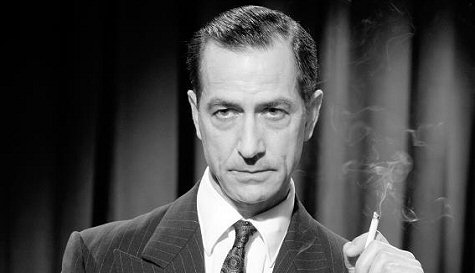
David Straitharn as legendary CBS newsman Edward R. Murrow in George Clooney’s Good Night and Good Luck.
One of the stories I’m especially cranked about is the apparent intention of Warner Bros. to put George Clooney’s Good Night and Good Luck, a modestly budgeted black-and-white feature about the 1954 battle between CBS newsman Edward R. Murrow (David Straitharn) and the anti-communist demagogue Sen. Joseph McCarthy, into theatres in October or November.
The idea is apparently for the film to play either the Venice or Toronto or New York film festivals, or perhaps all three. I know nothing at all about the quality of Straitharn’s performance, but one presumes he will be quite good in the role. When has Straitharn ever not been exceptional?
I have to cut out in order to attend an NYU Pre-College Orientation class that starts at 2 pm. Jett should be attending this but he’s taking his last two finals at Brookline High School today so I’ll be there with my notepad.
I’ll put up the remaining material tonight and tomorrow morning.
Armond Says…
When New York Press critic Armond White rips into someone, he really goes to town. If I were Nora Ephron I would grab a hard copy of this Bewitched review and frame it and put in on my wall, as a way of showing my friends (and myself) what a good sport I am.
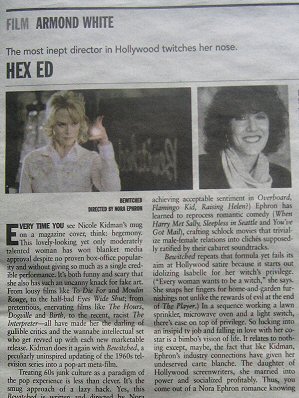
Here’s a photo and here’s the online page link
I’m thinking of something Joseph P. Kennedy once said about his son Robert: “The kid hates like I do.” I don’t think of White as any kind of junior-level presence (quite the contrary), but he does tend to assign notions of almost Biblical-scale evil to certain mainstream filmmakers, and I’ve always found this endearing on a certain level.
Grabs
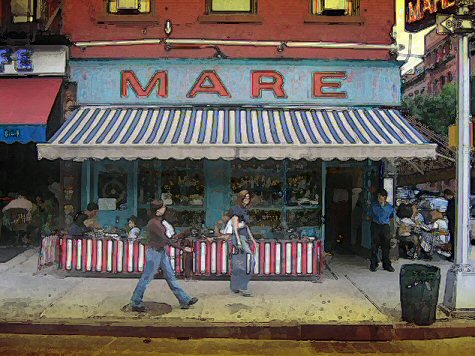
Wednesday’s Mare photo tweaked by Ken Bell of Graphic Planet.

I’ve thought and thought about what to call this photo, and I’ve finally decided upon “Cement Guy.”
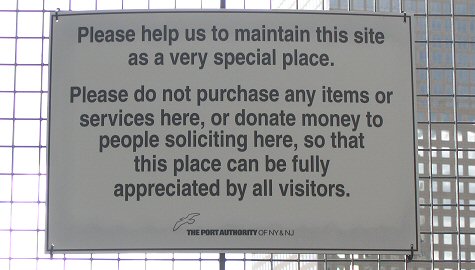
Sign hanging on chain-link fence bordering far eastern barrier of Ground Zero.
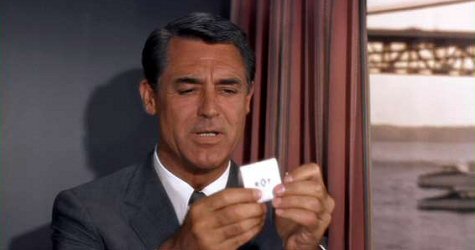
Latest in a series of R.O.T. photos. I relate to R.O.T., or rather the spiritual condition alluded to by this acronym.
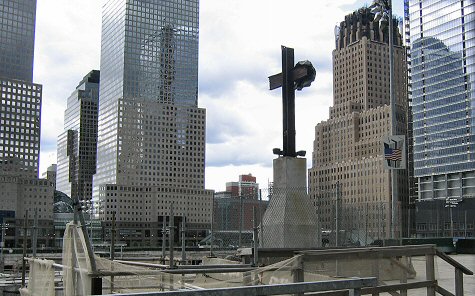
The Ground Zero crucifix made out of a remaining portion of a steel framework that was part of one of the towers.

Back by popular demand! Many people (okay, guys) have sent in compliments. A director friend told me yesterday he believes this photo deserves to be hung in the Museum of Modern Art. I completely agree.
